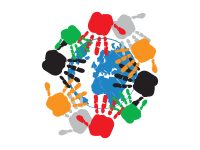Today, refugees have the right to work in Switzerland. The procedure has been made easier.
The Swiss Integration Agenda (AIS) was introduced by the Confederation on 01.05.2019 for persons with a recognised B-refugee permit, a provisionally admitted F-refugee permit or a provisionally admitted F-person permit. All persons who received a permit after this date are entitled to AIS. Persons who arrived before this date are cared for by the General Hospice.
If you have any questions or difficulties regarding your job search, don't hesitate to consult the Agenda Intégration Suisse website or the website of the Bureau de l'Intégration et de la Citoyenneté (BIC).

Office of Integration and Citizenship (BIC)
Route de Chancy 88
1213 Onex
Many refugees in Switzerland are unable to find work for a long time, have little contact with the resident population and are dependent on social assistance. This is where the Integration Agenda comes into play, enabling adolescents and young adults to learn a national language more quickly and to prepare themselves for a job. This enables them to find their feet in the labour market, to support themselves and to integrate into local society. This reduces the rise in welfare costs and strengthens social cohesion.
More information CLICK HERE.
The SEM regulates the conditions of entry, residence and work in Switzerland and decides who is entitled to protection from persecution. Together with the cantons, it organises the accommodation of asylum seekers and the return of those who do not require protection. It also coordinates integration work and is responsible at federal level for dealing with naturalisation cases. Finally, the EMW is committed to the efficient management of international migration movements.
For more information CLICK HERE.
Promoting social cohesion and the integration of foreign nationals, based on the values of the Geneva and federal constitutions, are the objectives of the Integration and Citizenship Office. It coordinates public action in this field, develops and finances integration actions and projects with associative and institutional partners, raises awareness, informs and guides the population on all issues relating to migration, ensures equal opportunities, combats discrimination and encourages the joint efforts of associations, the State and municipalities. All its activities are defined in the cantonal integration program (PIC).
More information CLICK HERE.
The main task of the Cantonal Office of Population and Migration is to maintain the register of inhabitants and the register of foreigners who are gainfully employed but not resident in the canton. It also handles applications for Swiss identity documents and carries out the ordinary naturalisation procedures. In addition, it processes the files of asylum seekers assigned to the Canton of Geneva and ensures the proper execution of removal decisions pronounced by the competent authorities.
For more information CLICK HERE.
For all questions regarding apprenticeships, professions and training
More information CLICK HERE.
The State Secretariat for Education, Research and Innovation SEFRI within the Federal Department of Economic Affairs, Education and Research DEFR is the federal government's centre of competence for national and international issues relating to education, research and innovation policy.
More information CLICK HERE.
Information at the federal level concerning the recognition of foreign diplomas.
More information CLICK HERE.
All about Geneva's professional training.
More information CLICK HERE.
With Academic Horizon, the University of Geneva offers a programme of professional and social academic integration. It is intended for people in the field of asylum and for people holding a B permit for family reunification. It is also open to Swiss nationals returning from abroad.
More information CLICK HERE.
Information about taking French courses. The mastery of a national language plays an essential role in the integration process. Although language skills are not an end in themselves, they nevertheless allow for better social and professional integration since they facilitate access to all kinds of information, benefits and services, as well as the exercise of certain rights and the understanding of the functioning of institutions.
More information CLICK HERE.
We are committed to ensuring that Switzerland respects the right to protection from persecution guaranteed by the 1951 Geneva Convention on Refugees. We contribute to ensuring that asylum seekers receive a fair procedure and that recognised refugees are given a real chance to participate in the economic, social and cultural life of our country. We are committed to an open and caring Switzerland.
More information CLICK HERE.
List with different addresses for legal advice in relation to asylum (CSP, Elisa, Scribes for Asylum, Caritas and SSI).
More information CLICK HERE.
Information on labour law.
More information CLICK HERE.